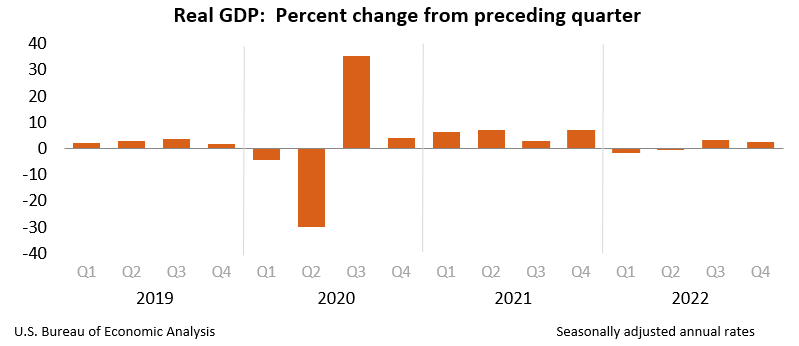The Biden Administration recently announced a set of executive orders intended to “improve care for hard-working families while supporting care workers and family caregivers.” Some of these efforts have merit—including a pilot program aimed at supporting family members who care for relatives with dementia at home.
However, I was very struck by the rationale for these Executive Orders. The Administration explained:
[M]any Americans – particularly women – stay out of the workforce to care for their families, making it hard for businesses to attract and retain a skilled workforce and for the economy to grow. A BCG brief forecasts losses of $290 billion each year in gross domestic product in 2030 and beyond if the U.S. fails to address the lack of affordable child care.
The Biden Administration, apparently, believes it is bad for women to “stay out of the workforce to care for their families” because it is bad for GDP growth.
In reaching this conclusion, the Administration cites a report by the giant consulting firm BCG, which laments that CEOs are “grappling with labor shortages and broader talent concerns.”
That BCG report notes that the value of “unpaid caregiving” in the United States is equivalent to $2.5-$3.5 trillion. It would be better, BCG believes, if the work of parents caring for their kids—and family members caring for the elderly—mostly took place in the formal economy.
BCG writes that government should create (among other things) a universal childcare system. It recommends that business leaders push “policymakers [to] recognize the need for subsidized or universal programs” so workers can “access . . . [paid] childcare.” This is because:
[F]or CEOs, the cost of inaction is high. Not only are related issues affecting morale and productivity, but our BCG/Dynata survey found that more than 40% of employed caregivers have missed more than five days of work over the last year simply because their paid-care support has fallen through. Further, when employees end up quitting, corporations are forced to devote additional resources to replace them. According to the Society for Human Resource Management, turnover costs can range from six to nine months of the replaced employee’s salary.
It might be better for GDP growth—and apparently some business leaders’ staffing problems—if the moms (and sometimes dads) taking care of little kids and family members rejoined the paid workforce and put their kids in paid childcare. But surveys are clear that this is not what many parents prefer to do. And the $3.5 trillion of value they provide does not somehow become worthless or unimportant just because it is outside the formal economy. (Indeed, as I have written elsewhere, supporting breadwinner/homemaker families is good for many businesses, as it provides a stable dynamic that parents actually want when taking care of little kids!)
We need a better way to value homemaking—one that is not focused on GDP growth above all other possible metrics.





This is why we need a new feminism that does not ignore motherhood and other family care work. Early feminists had a choice, to focus on women getting into paid work outside the home, or focus on women getting pay for the (home) work they already did, otherwise they would always be dependent on a man. They chose the former, rightly, because women had to prove that they can be as able as men financially - men were not going to hand them a 'housewife's wage'. But now we need to say, hold on, we can do what men do (ie. we've proved our 'worth' in male terms), but should we always? Many people, especially women, prefer to care for their own family, though there is a role for professional carers too. And what about all the support that the partner at home provides to allow the 'working' partner to have an outside job and contribute to GDP without distractions? Current work and school hours were designed for families with one working parent, so where both parents work, there is little time to care for the home (unless you earn enough to outsource). The problem here is that the tail, the economic system, is wagging the dog, and it should be the other way round. We need to campaign to alter current ideas about GDP etc and change the economic system to include contributions to society made by those who work in the home.
Whole heartedly agree. I think it's hard for some people who live in the policy world to grasp that not everyone wants to work all the time. I know the excuse here is GDP, but I think there's also an underlying assumption that people can't live full/fulfilled lives without a formal profession.